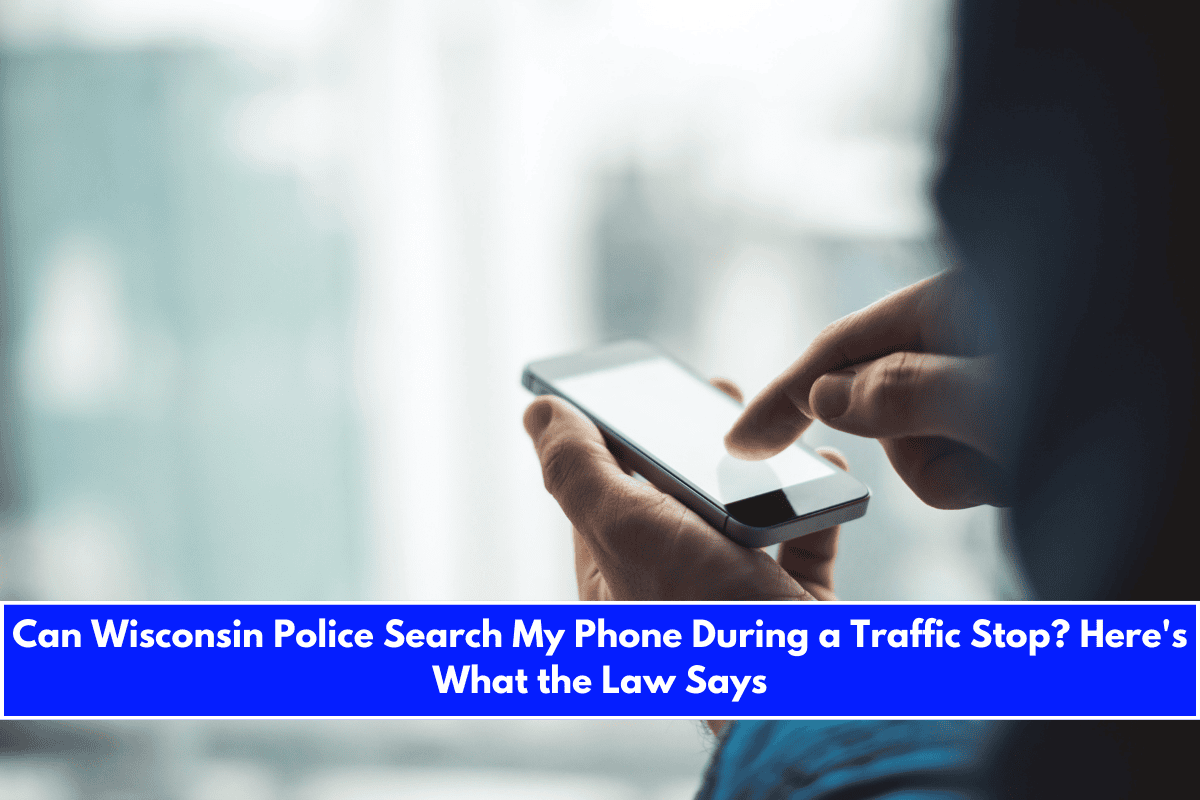Wisconsin police generally cannot search your phone during a traffic stop without a warrant. This protection comes from the Fourth Amendment, which requires law enforcement to obtain a warrant before searching your property, including your cell phone, due to the vast amount of personal information it contains.
The warrant must be supported by probable cause and must specify what data the police are allowed to search.
Key Exceptions to the Warrant Requirement
There are a few important exceptions where police may search your phone without a warrant:
- Consent: If you voluntarily give police permission to search your phone, they do not need a warrant. However, you have the right to refuse this request, and you are not obligated to unlock or hand over your phone unless a warrant is presented.
- Exigent Circumstances: In rare cases where police believe there is an immediate threat to public safety or a risk that evidence will be destroyed, they may be able to search your phone without a warrant. These situations are narrowly defined and must be justified in court.
- Search Incident to Arrest: While police can search your person and vehicle after a lawful arrest to ensure officer safety and preserve evidence, the U.S. Supreme Court has ruled that this exception does not automatically apply to digital data on cell phones. A separate warrant is still required for phone contents.
Scope of Consent Matters
If you do consent to a search, the scope of your consent is important. For example, if you only allow police to view specific text messages, they are not permitted to search your entire phone or make a digital copy of all its contents. Any search beyond what you explicitly allowed could be challenged as unlawful.
What Happens If Police Search Without a Warrant or Consent?
If police search your phone without a warrant or your consent (and no valid exception applies), any evidence they obtain may be inadmissible in court. Your attorney can file a motion to suppress this evidence, which could weaken or even dismiss the prosecution’s case against you.
Your Rights During a Traffic Stop
- You have the right to refuse a phone search.
- You are not obligated to provide your phone’s passcode or unlock it unless a warrant is shown.
- You can ask if you are free to leave and should remain calm and polite during all interactions.
Summary Table: Wisconsin Police Phone Search Laws
| Situation | Can Police Search Your Phone? |
|---|---|
| No warrant, no consent | No |
| With your consent | Yes, within the scope of consent |
| Exigent circumstances (emergency) | Possibly, but must be justified |
| Search incident to arrest | No, warrant still required for phone |
Wisconsin police cannot search your phone during a traffic stop without a warrant or your explicit consent, except in rare emergency situations. You have the right to refuse a search and to protect your digital privacy under both state and federal law.
Sources:
- https://mylolowcountry.com/usa-laws/can-wisconsin-police-search-my-phone-during-a-traffic-stop-heres-what-the-law-says/
- https://www.eauclairecriminaldefense.com/can-the-police-search-my-phone-without-a-warrant
- https://www.stangllaw.com/blog/legality-owi-traffic-stops-searches-wisconsin
- https://www.eff.org/deeplinks/2021/03/eff-files-amicus-brief-challenging-warrantless-cell-phone-search-retention-and?language=sv











Leave a Reply